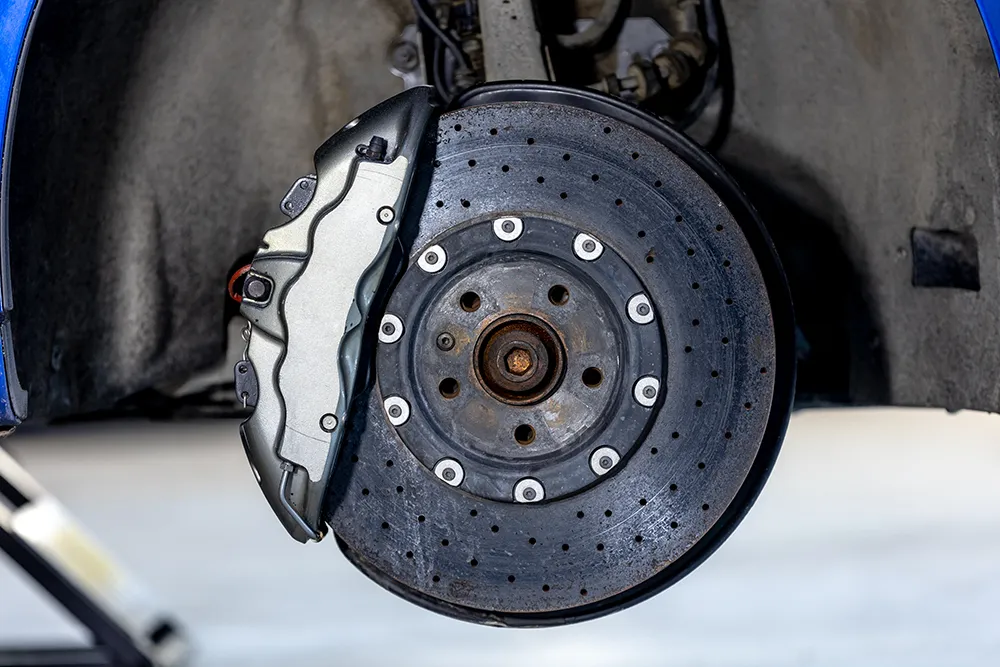As we transition from the icy roads of winter to the rainy season of spring, it’s crucial to ensure that your vehicle’s brakes are in optimal condition. Your brakes are your car’s most important safety feature, especially when dealing with wet and slippery roads. Taking the time to inspect and maintain your brakes can make all the difference in keeping you safe on the road. Here are some essential tips to ensure your brakes are ready for the upcoming spring showers.
1. Listen for Signs of Wear
One of the first signs that your brakes may need attention is unusual noises while braking. Squeaking, squealing, or grinding sounds can indicate worn brake pads or other potential issues. Paying attention to these auditory cues can help you catch problems early before they turn into more significant and costly repairs.
2. Check Brake Fluid
Brake fluid plays a crucial role in the braking system by transferring force into pressure, amplifying braking force. Ensure that your brake fluid is clean and at the proper levels. Contaminated or low brake fluid can affect brake performance and lead to potential safety hazards.
3. Inspect Brake Pads and Rotors
Brake pads and rotors wear down over time due to friction. Inspect your brake pads for thickness and any signs of wearing. Similarly, check your rotors for signs of scoring or warping. If you notice uneven wear or damage, it may be time to replace them.
4. Address Any Vibrations
If you feel vibrations or pulsations when applying the brakes, it could be a sign of warped rotors. Ignoring this issue can lead to decreased braking effectiveness and compromise your safety on the road. Have a professional mechanic inspect and resurface or replace the rotors if necessary.
5. Maintain Proper Tire Pressure
Maintaining the correct tire pressure is essential for optimal brake performance. Underinflated tires can increase stopping distances and put extra strain on the brakes. Check your tire pressure regularly, including the spare tire, to ensure a safe driving experience, especially during the rainy season.
6. Schedule Regular Brake Inspections
Routine brake inspections by a qualified mechanic are crucial for identifying potential problems early on. A professional technician can assess the condition of your brakes, recommend any necessary repairs or replacements, and ensure that your braking system is functioning correctly.
7. Drive Cautiously in Wet Conditions
In addition to maintaining your brakes, it’s essential to adjust your driving behavior when encountering wet roads. Increase following distances, drive at moderate speeds, and avoid sudden stops to prevent skidding and maintain control of your vehicle. Being proactive and vigilant can help mitigate the risks associated with driving in spring showers.
8. Consider Professional Brake Service
If you’re unsure about the condition of your brakes or if you notice any concerning signs, don’t hesitate to seek professional brake service. Experienced technicians have the expertise and tools to accurately assess and address any brake issues, ensuring your safety and peace of mind on the road.
By following these tips and staying proactive about brake maintenance, you can navigate the spring showers with confidence and peace of mind. Remember that your safety and the safety of others on the road depend on the reliability of your braking system. Don’t overlook the importance of brake maintenance, especially as we transition into the rainy season.
Final Thoughts
Ensuring that your brakes are ready for spring showers is a critical aspect of vehicle maintenance that should not be overlooked. By listening for signs of wear, checking brake fluid, inspecting brake pads and rotors, addressing vibrations, maintaining proper tire pressure, scheduling regular inspections, driving cautiously in wet conditions, and considering professional service when needed, you can enhance your safety on the road. Stay proactive, prioritize brake maintenance, and enjoy a smooth and secure driving experience, even amidst the challenges of changing weather conditions.

